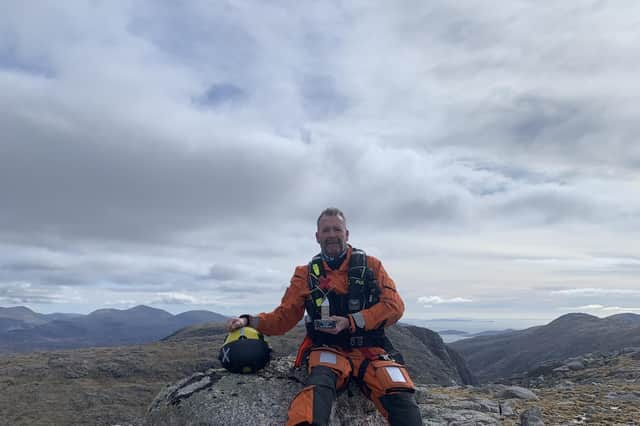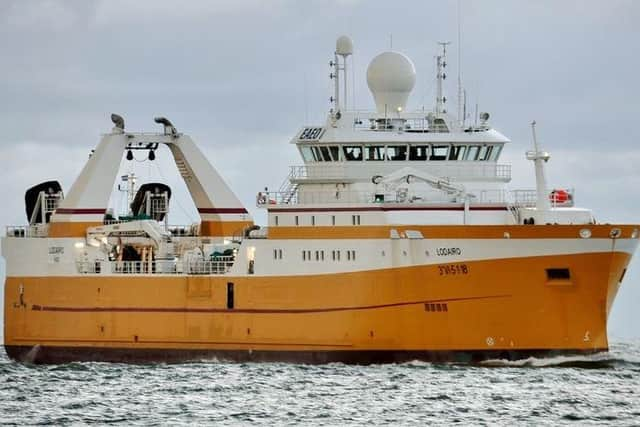First aid hero honour for helicopter winchman


In recognition of his role in saving the lives of two crew members of a Spanish fishing vessel last November, Norman received the Emergency Services Hero of the Year Award at the St Andrews First Aid Awards ceremony in Glasgow.
The rescue, he said, took place in “very squally” conditions more than a hundred miles to the north west of Stornoway. “The team did a great job in getting me down”, said Norman, while a colleague on the Bristow helicopter described the rescue operation as “astonishing”.
Advertisement
Hide AdAdvertisement
Hide AdSpeaking to the Gazette, Norman explained how a 200 foot “high line” with a lead weight was lowered to assist his descent to the supertrawler Lodairo “without being blown about”.


He added: “That only works if the crew of the ship know how to use it and in this case they didn’t but they got the message pretty quickly!”. Once on board, the gruesome scene he encountered was “like something I hadn’t seen in 30 years as a paramedic”.
The legs of the two men had become entangled in the winch equipment. One had already lost a leg while the other had serious wounds to both of his legs.
Norman had taken his first response bag, weighing 30 kilos down with him, and had to apply emergency treatment. “The first guy’s leg was ripped out. I applied haemostatic gauze which has a property on it that encourages blood clotting. The second casualty needed special tourniquets to both legs to stop the bleeding”.
Advertisement
Hide AdAdvertisement
Hide AdTwo stretchers were sent down from the helicopter “which is pretty unusual” and lifted to safety, with Norman accompanying each transfer.
The helicopter then returned to the Western Isles Hospital where an emergency medical team from Glasgow, which had been alerted at the start of the rescue operation, and nursing staff were waiting.
The second man lost both his legs but, said Norman, “they both survived which is the main thing”. Subsequent information suggests that they are both recovering well.
“It was quite an exceptional job and, as in everything else, mistakes were made and there were lessons to be learned,” he said. “We had a Teams meeting subsequently with all sides of the profession from around the country to review what we would have done given a second chance”.
Advertisement
Hide AdAdvertisement
Hide AdHe described the awards ceremony, which he attended with his wife Alison, as “a lovely night” but even since then, he and his fellow crew members have been involved in another “nasty job out in the Atlantic”.
Last Friday, the Search and Rescue helicopter was called to an emergency 160 miles out into the Atlantic after a bulk carrier radioed to say that a seaman was seriously ill. “The waves were eight metres high and getting onto it was quite sporty”, said Norman with notable understatement.
The seaman, of Burmese nationality, was safely delivered to the Western Isles Hospital – another successful operation involving awesome feats of skill and courage.